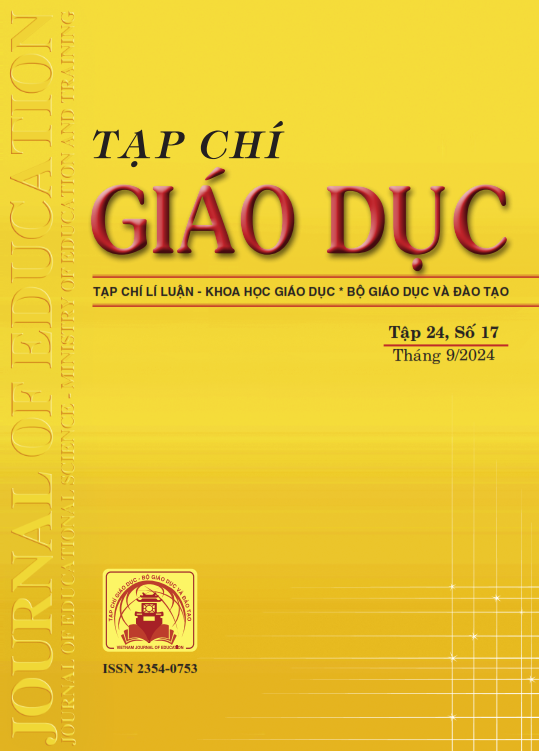Dạy học khái niệm “Biến cố độc lập” (Toán 11) theo mô hình học tập trải nghiệm
Tóm tắt
The experiential learning model plays an important role in developing students' abilities and qualities, helping them be self-aware, actively learn, and improve their ability to self-discover and acquire knowledge. Students better understand the meaning and application of the knowledge they have learned, and accumulate experience and creativity in solving practical problems. This study introduces the steps of David A. Kolb's experiential learning model and applies this model to teaching the concept of “Independent Events” (Math 11). Through teaching according to the experiential learning model, students have hands-on experiences, thereby being capable of converting from existing experience and knowledge to acquiring new knowledge, having a positive learning attitude and forming necessary skills, meeting the requirements of the 2018 General Education Curriculum, contributing to improving the quality of Math teaching in high schools.
Tài liệu tham khảo
Anik, Y., Yay, S. K., & Jarnawi, A. D. (2021). Critical thinking: How is it developed with the experience learning model in junior high school students? Al-Jabar: Jurnal Pendidikan Matematika, 12(1), 175-184.
Avelino, G. I. J., & Joseph, D. R. (2017). Exploring mathematics achievement goals using Kolb’s learning style model. Asia Pacific Journal of Multidisciplinary Research, 5, 19-24.
Bộ GD-ĐT (2018). Chương trình giáo dục phổ thông - Chương trình tổng thể (ban hành kèm theo Thông tư số 32/2018/TT-BGDĐT ngày 26/12/2018 của Bộ trưởng Bộ GD-ĐT).
Đào Thị Ngọc Minh, Nguyễn Thị Hằng (2018). Học tập trải nghiệm - Lí thuyết và vận dụng vào thiết kế, tổ chức hoạt động trải nghiệm trong môn học ở trường phổ thông. Tạp chí Giáo dục, 433, 36-40.
Ghofur, A. (2021). Mathematial Literacy Ability in Experiential Learning with Performance Assessment Based on Self - Efficacy. Unnes Journal of Mathematics Education Research, 11(1), 94-101.
Kolb, A. D. (1984). Experiential Learning: experience as the source of learning and development. Englewood Cliffs, NJ: Prentice Hall.
Nguyễn Thị Hằng (2017). Lí thuyết học tập trải nghiệm - những vấn đề lí luận cơ bản và định hướng vận dụng vào tổ chức hoạt động trải nghiệm sáng tạo. Tạp chí Khoa học, Trường Đại học Sư phạm Hà Nội, 62(1A), 48-57.
Nguyễn Thị Nga (2021). Dạy học khái niệm xác suất ở lớp 11 thông qua hoạt động trải nghiệm. Tạp chí Khoa học, Trường Đại học Sư phạm Thành phố Hồ Chí Minh, 2, 285-298.
Nguyễn Văn Thuận, PhạmThị Thương, Phạm Sỹ Nam (2023). Dạy học khái niệm “Hình hộp chữ nhật” (Toán 7) theo mô hình học tập trải nghiệm. Tạp chí Giáo dục, 23(22), 7-10.
Priatmoko, S., & Dzakiyya, N. (2020). Relevansi kampus merdeka tehadap kompetensi guru era 4. At - Thullad Jurnal Pendidikan Guru Madrasah Ibdaiyah, 4(1), 1-15.
Tải xuống
Đã Xuất bản
Cách trích dẫn
Số
Chuyên mục
Giấy phép

Tác phẩm này được cấp phép theo Ghi nhận tác giả của Creative Commons Giấy phép quốc tế 4.0 .












